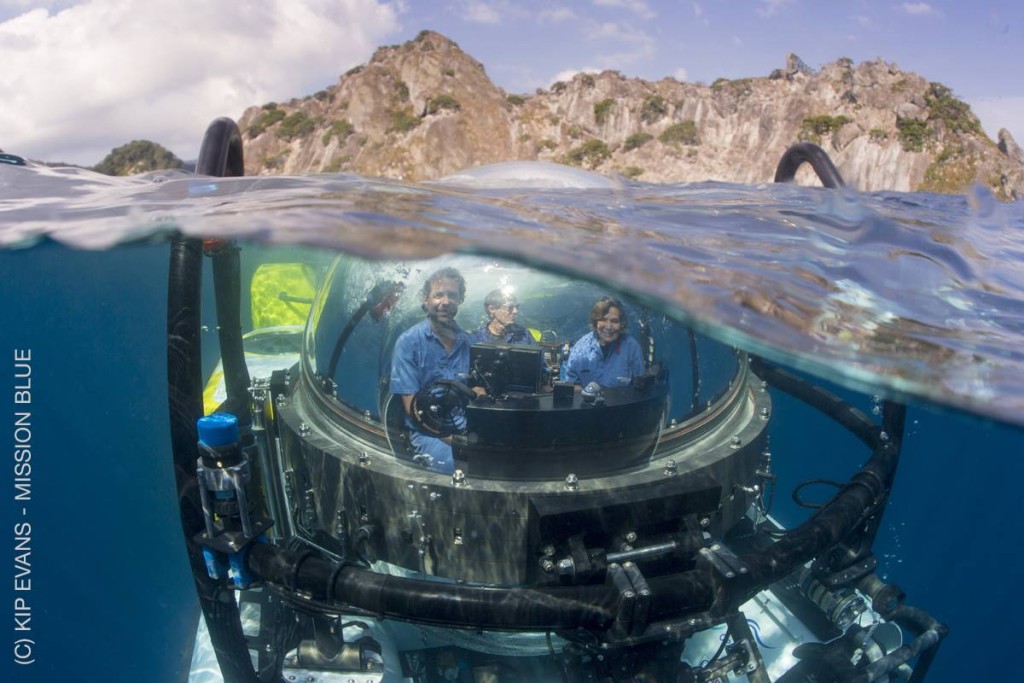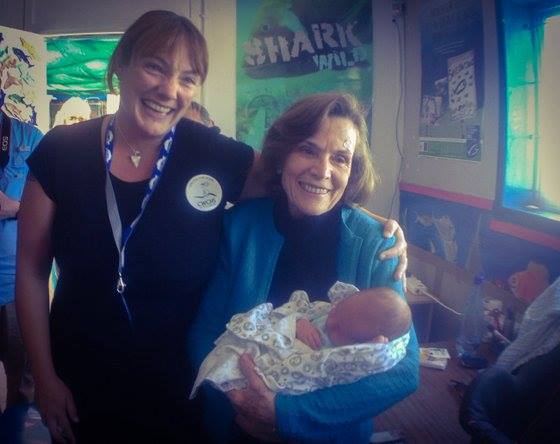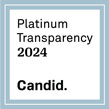Gills Club Interviews Dr. Sylvia Earle
July 30, 2015
Our partners at the Gills Club recently interviewed Mission Blue founder Dr. Sylvia Earle. Learn more about the Gills Club and their amazing work on their website.
Why did you start studying marine biology?
My first encounter with the ocean was on the Jersey Shore when I was three years old and I got knocked over by a wave. The ocean certainly got my attention! It wasn’t frightening. It was more exhilarating than anything else. And since then life in the ocean has captured my imagination and held it ever since. I started out as a kid and never did grow up. The best scientists and explorers have the attributes of kids. They ask questions and have a sense of wonder. They have curiosity. Who, what, where, why, when, and how!
What do you enjoy most about being a scientist?
You never know what you’re going to find! Ninety-five percent of the ocean is not explored. Diving in, meeting creatures, and observing the wondrous diversity of life on earth are the real joys of exploring the ocean, for me. On land, only about half of the many major divisions of life occur over all the continents and islands put together – the terrestrial parts. But even in a bucket of seawater you may find as many of these major divisions of animal life, plus a nice dollop of photosynthetic organisms as well. About half of the creatures that occur in the ocean occur only there, of the major divisions. Think of starfish and their relatives. There’s no counterpart anywhere on the land or anywhere in fresh water. Or look at the whole category of life that includes the jellyfishes and the corals. Well, there are a very few freshwater jellyfishes, but they are such a small number compared to the great, great majority that are out there in the ocean. And so on down the list. There are a handful of freshwater sponges, but there are thousands, tens of thousands of marine species. So the dominant diversity of life on earth, contrary to what some people think, is not rainforests, as wonderfully diverse as they are. It’s the ocean! It’s the ocean!
Do you have a favorite memory from being on the water?
Oh, there are so many. I was at a place called Marion Reef in the Coral Sea, diving in 70 feet of water, and these grey reef sharks circled us. I could not count them, there were so many – at least 100. They were forming a great wheel around us but were quietly curious, not aggressive. It was a little hair-raising – had they chosen to gang up on us, they could have easily consumed us. But they were just looking. I remember it so well in my mind’s eye.
What is the most interesting thing you have learned from your research/conservation work?
The Ocean is alive. It is the cornerstone of earth’s life support system, and the cornerstone of the ocean’s life support system is life in the ocean. Oxygen is generated by living creatures. Every fish fertilizes the water in a way that generates the plankton that ultimately leads back into the food chain, but also yields oxygen and grabs carbon – it’s a part of what makes the ocean function and what makes the planet function.
Take away the ocean and we don’t have a planet that works. Take away life in the ocean and we don’t have a planet that works. All life needs water, and all life needs other forms of life to have the complex communities of life, ecosystems of life that ultimately over four-and-a-half billion years arrived at a state that is just right for humankind.
I have had the privilege of spending more time than others in the ocean and have seen things that others haven’t. People need to know. You can’t care if you don’t know and most people simply don’t know.
How does your research benefit shark conservation?
My self-appointed job is to inspire people to explore the ocean for themselves and to use their talents, whatever they are, to make a difference for the natural world. Part of that job is to spread the word that as top predators, sharks are fundamental to ocean health and they’re certainly not enemies. Occasionally a shark will take a bite. But we are not on their menu – they are on ours. We are the real top predators and kill them for sport, kill them for their fins, their liver, their meat. But they ignore us for the most part. We shouldn’t really have trouble in their presence.
A successful dive is usually a dive where you are fortunate to see sharks of any sort. Their numbers have dropped precipitously since when I first began diving in the 1950s – 90% of them are gone, most of them in the last 30 years. We’ve become extremely good at killing not only them, but also what sharks eat, throwing the entire food web into disarray. People need to know that healthy shark populations are worth more to mankind (in terms of tourism dollars and ecosystem stabilization) than dead sharks.
What would you say to aspiring young female marine biologists?
The Ocean is vulnerable. What we do or don’t do will make a difference. As individuals, young people can make a difference. The only difference that has been made ever in the world, for good or for not so good, always starts with somebody, an individual. Look in the mirror, consider your talents, and think about how you might use them to make a difference. Some have artistic skills; others are good with numbers or have a way with words. Everyone has power to make a difference as an individual – or by joining the company of others who share a common goal. The key is in knowing that what you do matters, including doing nothing!
We need to convey a sense of urgency because the world is changing quickly. The next ten years is likely to be the most important time in the next 10,000 years. We have options that we are going to lose within ten years unless we take action now. Every day, options close. Take care of the ocean as if your life depends on it, because it does.

When I met Sylvia Earle

As long as I have known about the ocean, I feel like I’ve known about Dr. Earle. Growing up in land-locked Canada I followed Dr. Earle’s career with great interest & was always inspired by women like her & Eugenie Clark. In fact, one of my lifelong ambitions – close to the top of my bucket list – was to meet Sylvia and have the opportunity to chat with the woman who changed the face of marine science for so many young women growing up in the 1980s. But it was always just that: an ambition; a wish. Something I never in my wildest dreams thought would become a reality. And then, in early 2014, my old boss & colleague, Dr. Tony Ribbink (Sustainable Seas Trust) – a close friend of Sylvia – met with our team at the SA Shark Conservancy & mentioned that Sylvia would be visiting South Africa to launch her Hope Spot initiative. When he asked if we could help launch the Cape Whale Coast Hope Spot (and mentioned I could actually meet Sylvia), I immediately jumped at the opportunity. I really & truly could not believe I would be meeting her face-to-face (and that the queen of marine science would actually be visiting the NGO I started in 2007!!)! Even now I squeal (internally, of course!) at the thought! After many months of preparation, Sylvia finally arrived in Hermanus to launch the Hope Spot. She was obviously tired from her transcontinental flight & crazy South African travel schedule, yet when she spoke with me I felt like we were the only two people in the world. She had me captivated from hello! Not to mention that she held my 10-day old son – surely a sign of incredible things to come! Despite being 79 years old, Sylvia has the energy levels of a 20 year old & is possessed with an undying passion for the oceans that is obvious in every word she speaks. She is one of the most magnetic people I have ever had the pleasure of meeting, and I feel so incredibly lucky to have met her.
Meaghen E. McCord
Founding Director
South African Shark Conservancy
Originally published on the Gills Club July newsletter.
(Featured Image © Todd Brown for UNEP)







